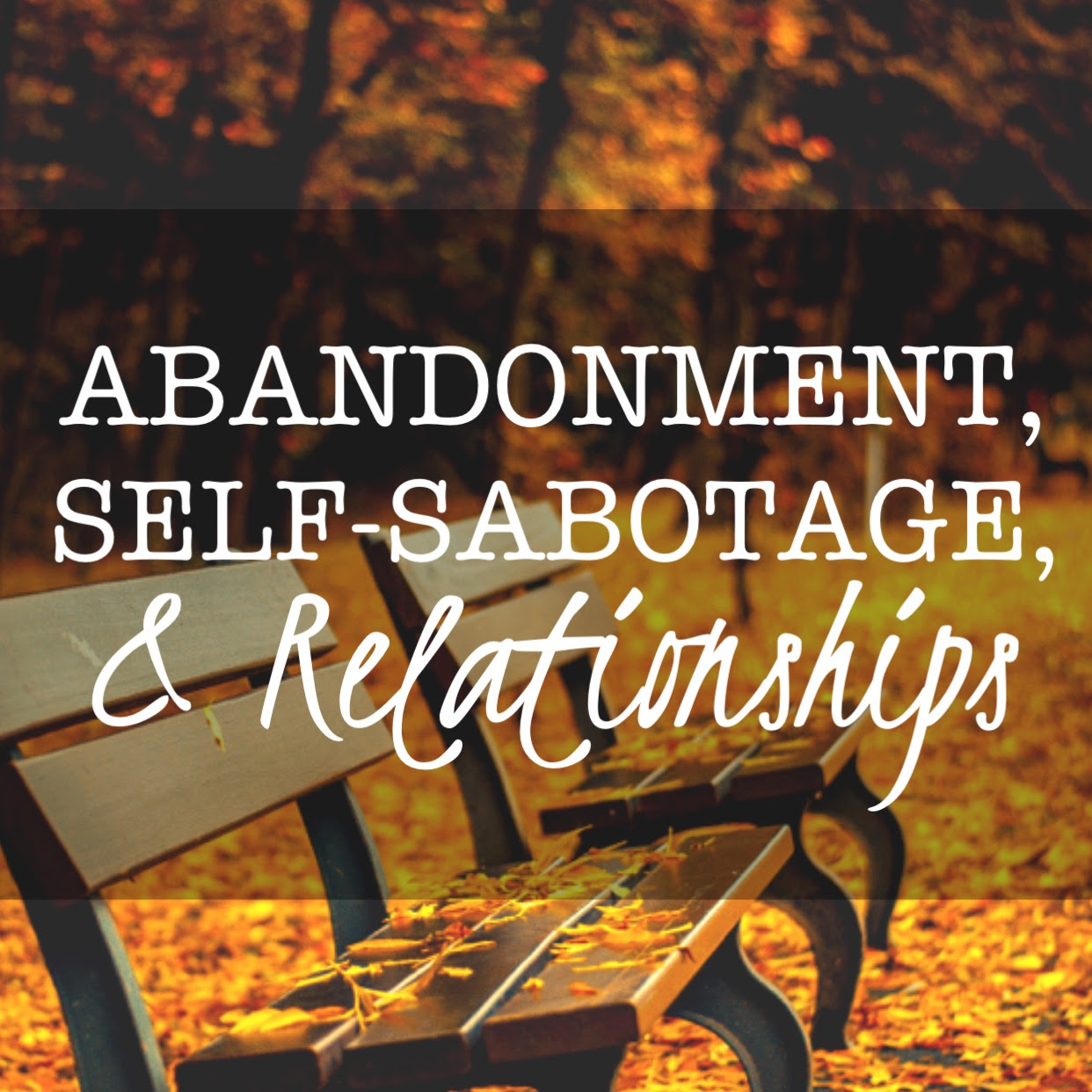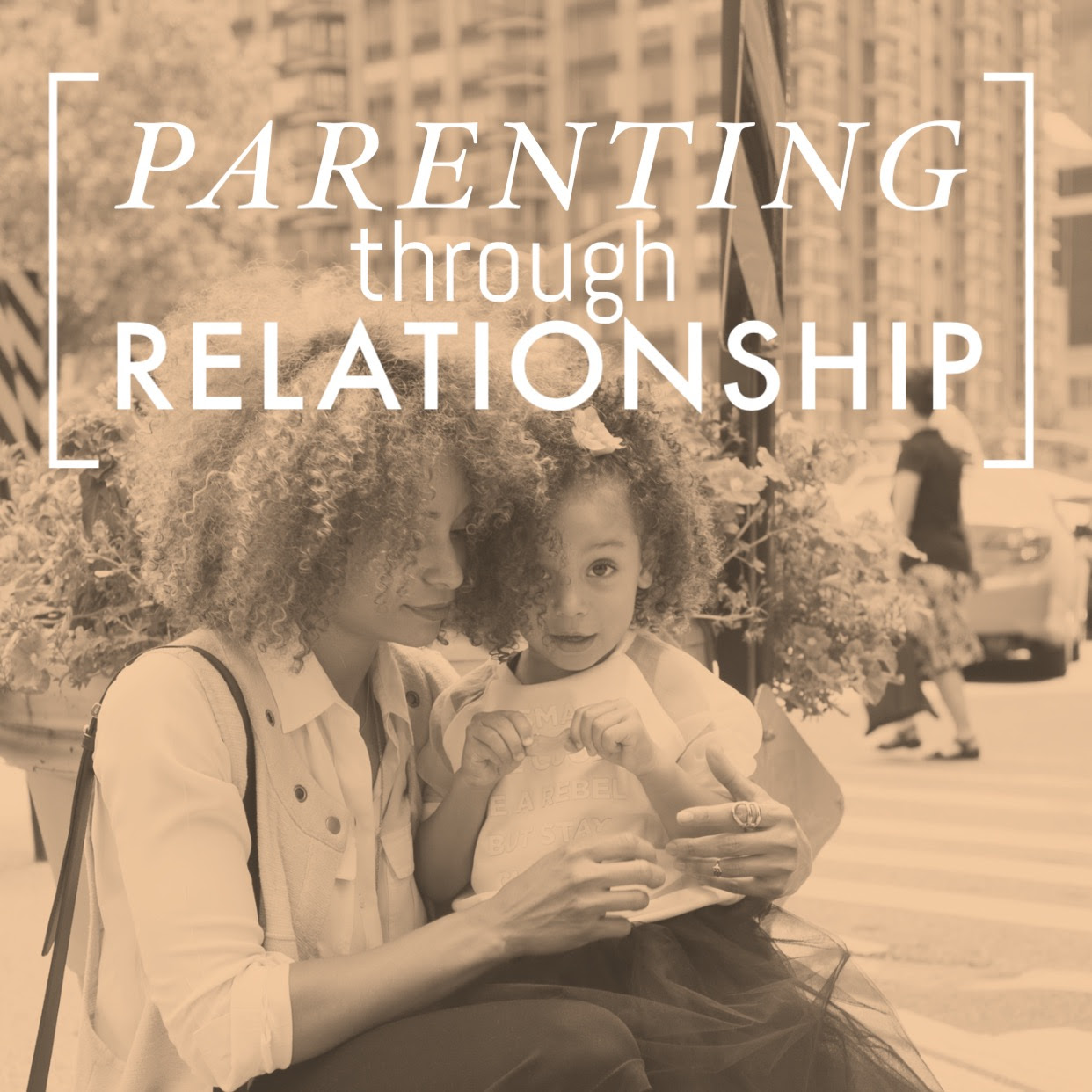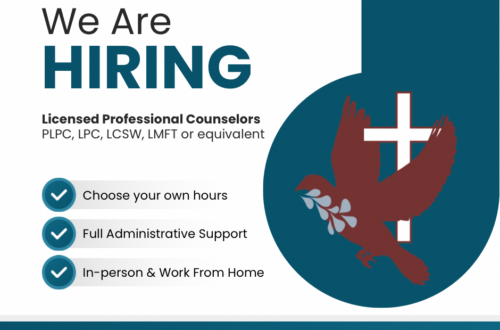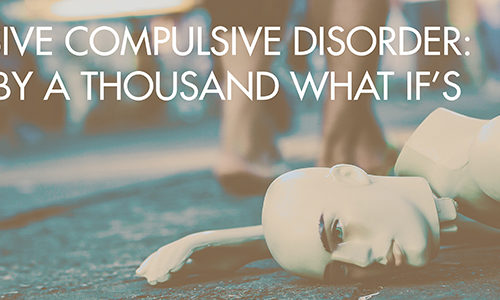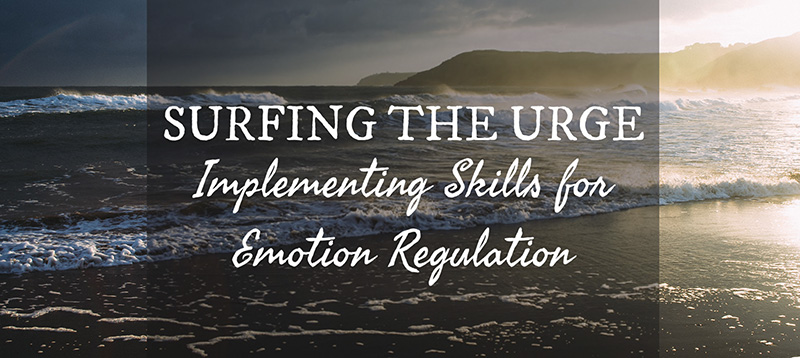
Surfing the Urge: Implementing Skills for Emotion Regulation
By Amanda Stutz, MA, LPC
To stand in the sea, immersed in the water, at the mercy of the powerful surf, is awe-inspiring and incredibly humbling. To be surrounded by the vastness of the ocean and see the power of the waves can cause one to pause. To splash about near the beach, being playful, and experiencing the water can be fun and exhilarating, but may leave one wanting to experience more. It may leave you with a desire to swim out further, explore the depths of the ocean and have a different kind of adventure. Leaving the comforts of the beach can evoke fear as the waves hurl themselves toward you, sometimes engulfing you, leaving you at the mercy of the ocean.
In the words of Jon Kabat-Zinn, “You can’t stop the waves, but you can learn to surf.” To paddle out into the ocean, again looking to explore the depths and beauty it offers, but this time with a surf board, can allow for a totally different experience. As the waves approach, a “wave” of fear may come over you, but you can prevent yourself from being engulfed by the waves if you climb onto your surf board, paddle yourself into position, stand firmly atop your board, and catch a ride on the approaching wave. No longer does the wave have to take you down; you can ride the wave back to the safety of the shore.
This is really a metaphor for life. Sometimes in life we are faced with a problem that may seem vast and overwhelming. We may be able to look at the problem from a safe distance– clearly able to see solutions, seek out help when needed, and use the resources available to us. At other times, however, we may feel immersed in the depths of our problems and feel as though we’re drowning. During these times, we may have urges to do what we must to survive. Sometimes, giving into these urges can be problematic and only contribute further to our struggle. When overwhelmed by emotions, one may numb the pain with alcohol, food, or other substances. When life becomes too much for us and a distraction is needed, one may have the urge to gamble, shop, engage in risky behaviors, or be drawn to unhealthy relationships.
Just as we can learn to surf the waves of the ocean to prevent ourselves from being engulfed by the waves, we can also learn to “surf the urge” to prevent ourselves from being engulfed by our problems and the unhealthy coping mechanisms many of us turn to in our struggle. “Urge surfing” is a term created by Adam Marlatt, who developed a relapse prevention program for individuals struggling with substance addiction. Surfing the urge is about utilizing mindfulness techniques to take note of our thoughts, feelings, and urges without acting on them. When we can notice our thoughts, how our thoughts are contributing to our emotional experience, and the urges we have as a result of these uncomfortable internal experiences, we can choose to sit with the discomfort, until the intensity of our thoughts and emotions decrease and the urge to react dissipates.
Dr. Marsha Linehan of The Linehan Institute, developed a cognitive behavioral treatment known as Dialectical Behavior Therapy, or DBT. This form of therapeutic treatment includes four types of behavioral skills sets that are taught to individuals in DBT programs. Individuals participating in DBT programs often struggle with substance abuse, suicidality, self-injurious behavior, eating disorders, addiction, and more. Many of us struggle with urges to engage in these and other unhealthy coping skills, and could benefit from some of the skills taught in traditional DBT programs and relapse prevention programs such as those developed by Marsha Linehan and Adam Marlatt.
Here are some skills that can be helpful in cultivating internal resources and the ability to “surf the urge”:
- Observe and Describe: Notice the thoughts, feelings and urges and describe them to yourself without acting on them. Sitting with your internal experience rather than suppressing or numbing can help you build distress tolerance and the ability to abstain from acting on your urges and engaging in unhealthy coping mechanisms.
- Be Non-Judgmental: When you notice that you’re experiencing a negative thought, emotion, or urge, try to notice it and accept it without judgment. Judgment of your internal experience can be shaming and is less likely to lead to acceptance and understanding of yourself and your experience.
- Embrace “Single-Tasking”: Multi-tasking involves doing many things at once and is not the most effective or mindful way of behaving. Instead, try “single-tasking”- doing one thing at a time in a mindful manner.
- Observe Your Breath: When you start to feel overwhelmed with thoughts, emotions, or urges, bring awareness to your breathing. A few minutes of mindful breathing, taking the time to observe and describe your breath, can give you some moments of calm and peace. When you return to the distressing thought or feeling, you may notice that it is not as intense and that your urge to engage in unhelpful behaviors has decreased.
- Build Mastery: Do something positive that gives you a sense of control and competency. This could be practicing yoga asanas, taking a class, doing crafts, or spending time engaging in your favorite hobby.
These and other such skills can be cultivated autonomously, but often one could benefit from additional support with a problem and finding ways to overcome it. During these times, it can be helpful to turn to God in prayer. Connecting to God can help us to feel supported during times of need. In Matthew 7:7-8, Jesus says, “Ask and it will be given to you; seek and you will find; knock and the door will be opened to you. For everyone who asks receives; he who seeks finds; and to him who knocks, the door will be opened.” Turning to the Lord in prayer, asking for His guidance, support, grace, and love can be a powerful way of seeking refuge from difficulties in life and gaining the support we need.
Additionally, seeking the support of loved ones, members of your church family, or even a professional counselor can help one to feel that he or she is not drowning, but supported. The help of a social support system can increase one’s resiliency in life’s difficult moments and allow one to coast back to the metaphorical shore relatively unscathed. Once returned to the safety of the shore, one is undoubtedly stronger for having made the difficult journey, and more likely to survive the next adventure at sea due to the lessons learned, skills mastered, and support of others.
 About the Author
About the Author
Amanda Stutz, LPC at Agape Christian Counseling, is trained in several treatment modalities, including Internal Family Systems Therapy, Dialectical Behavior Therapy, Trauma-Focused Cognitive Behavioral Therapy, and Schema Therapy. Her approach to treating clients is from a Christian perspective, providing a caring, compassionate, and safe environment for clients to do to the deep and vulnerable work necessary to achieve healing. Amanda treats children, adolescents and adults and provides individual, marriage, family, and group counseling services. Click on the picture to the left to read her full bio.
